The cuisine of Tibet: what to eat in the most magical place on Earth
Categories: Asia | Food and Drinks | Travel
By Pictolic https://pictolic.com/article/the-cuisine-of-tibet-what-to-eat-in-the-most-magical-place-on-earth.htmlThe Himalayas. Tibet. Something cosmic and ethereal sounds in the names. They attract visitors from all over the world. In front of the magical charm of Tibet could not resist no one, including our team, which made a two-week journey to ten cities.
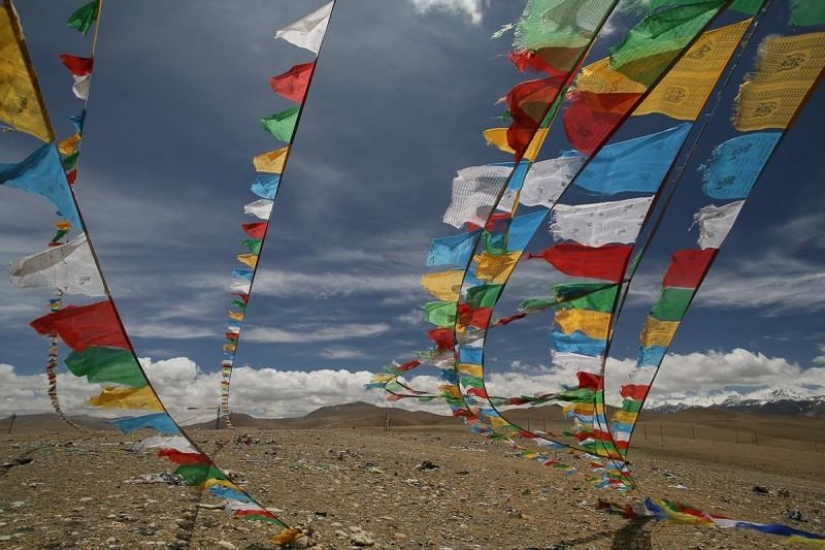
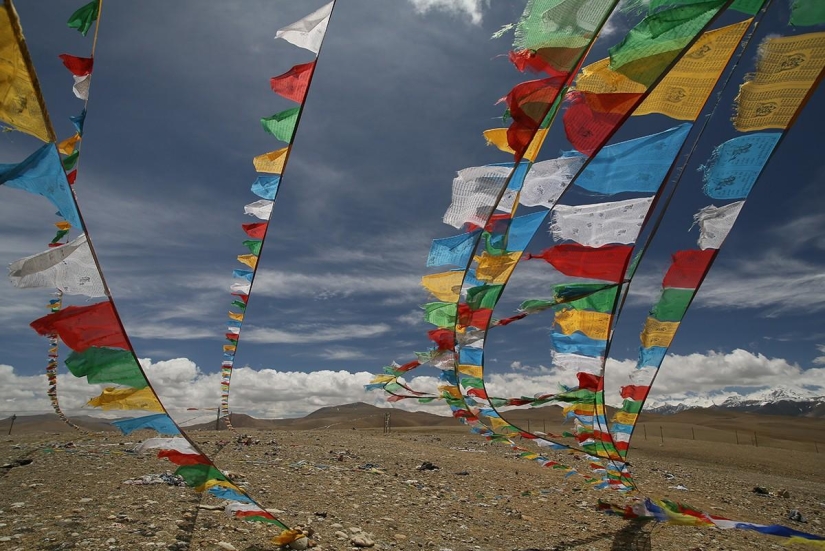
In Tibet it is unusual and generally at the same time. Harsh climatic conditions, high mountains, scorching sun, strong winds and sandy soil have paramount influence on the cuisine, which is not a particularly diverse.
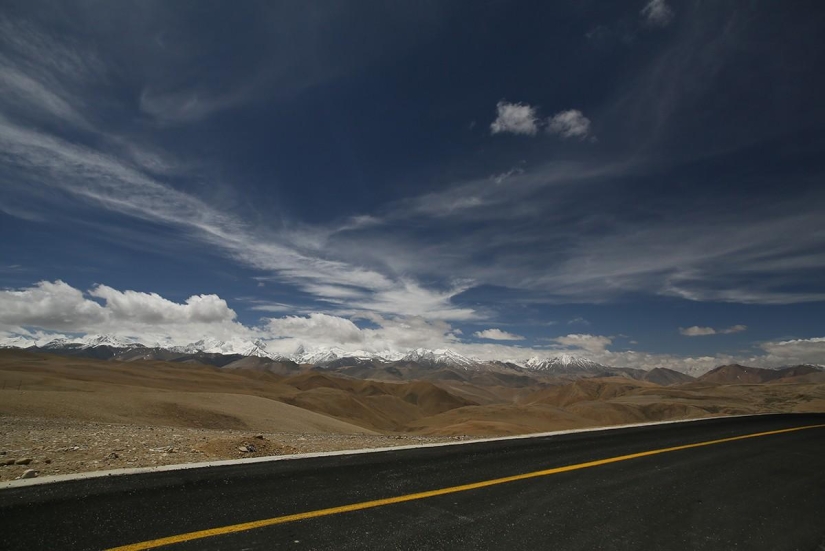
The basis of the diet is meat and milk of the Yak, or rather, in the case of milk — not Yak, and Dre (lady of the Yak, as said by the Tibetans), and barley flour. Sometimes also used goat and lamb. Anywhere, over 4,000 meters above sea level, you will be offered exclusively dishes from these products.
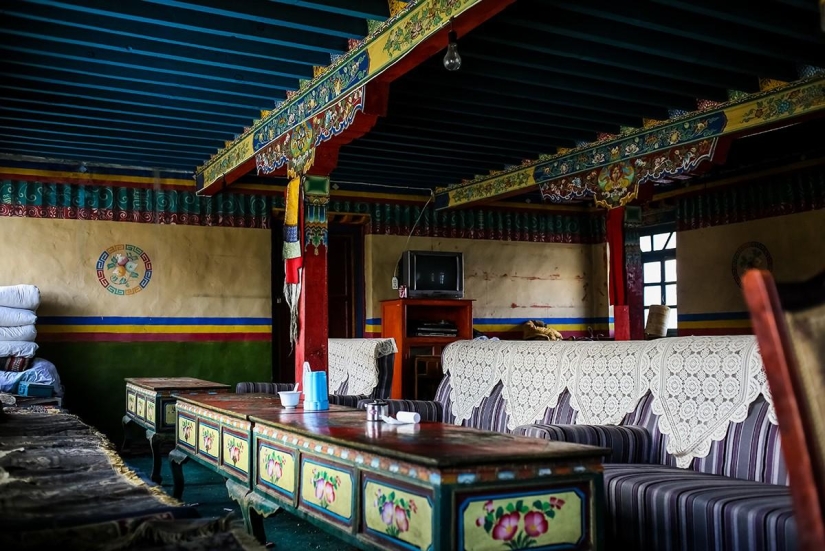
Typical Tibetan café. It should be noted that the cafe is very dirty. In the highlands, where to go far for water, you will be served the common spoons and forks from the same bowl and there is no certainty that they were washing. It's a little shocking at first, but then don't even pay attention.
In big cities, located just below, at an altitude of about 3600-3800 m above sea level, you have to enjoy fruits and vegetables, most of which are imported there by the Chinese.
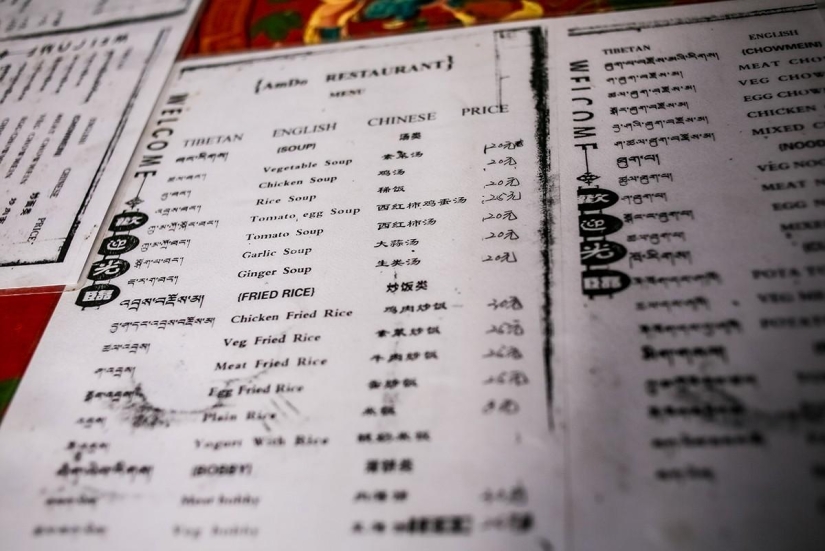
Menu. We were lucky, as two of our company is studying the Tibetan language.
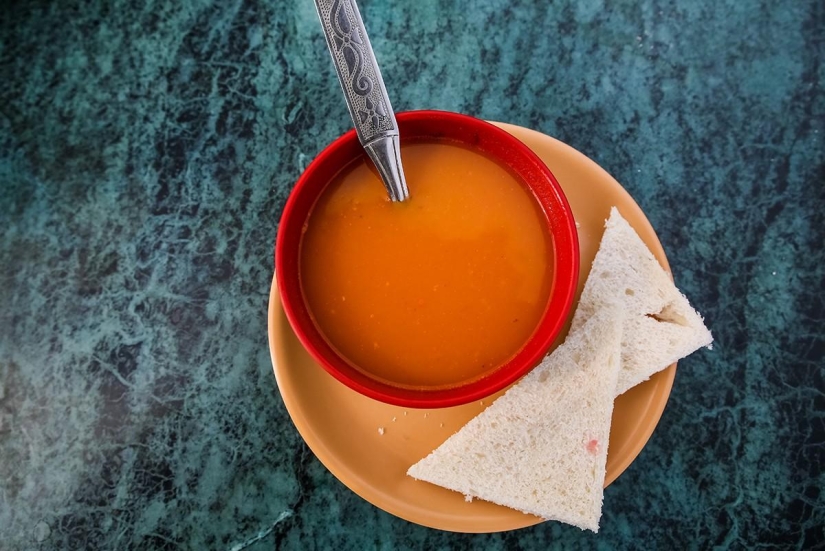
The most popular vegetable is the tomato and onion. Tomato soup you can enjoy anywhere, but the texture and taste will be very different.
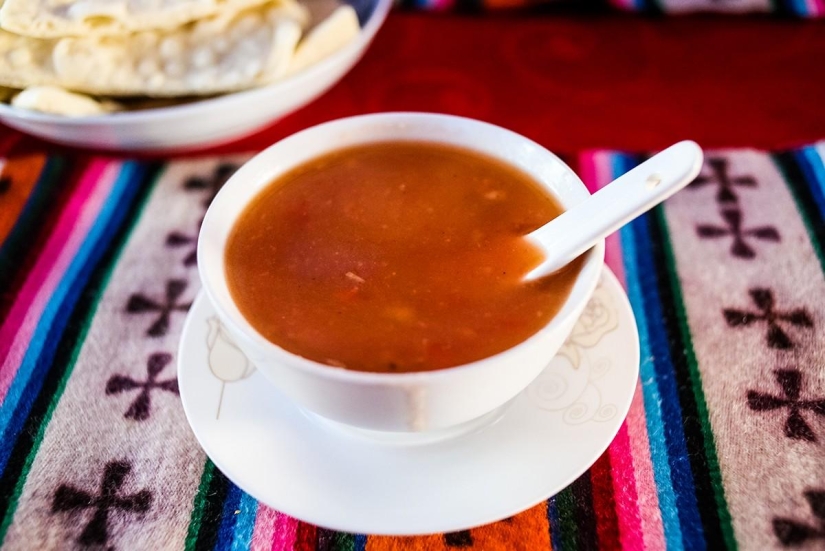
The soup is very tasty and sometimes so dense that it is more like a sauce. Sometimes poignant, and almost fresh. This is probably the most delicious dish in Tibet.
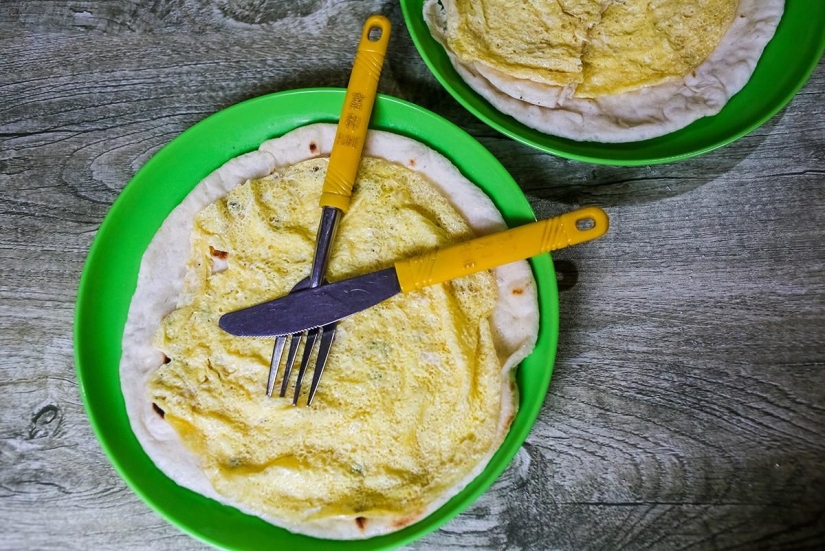
And every morning at any cafe will offer you an omelet. Where do I get eggs at an altitude of over 4000 m above sea level, for we are left a mystery. We didn't see any chicken. Even the soup with egg actually is a soup with sliced omelette. I think they do it from a dry mix, and especially for foreigners. The Tibetans start every morning with campy...
Tampa
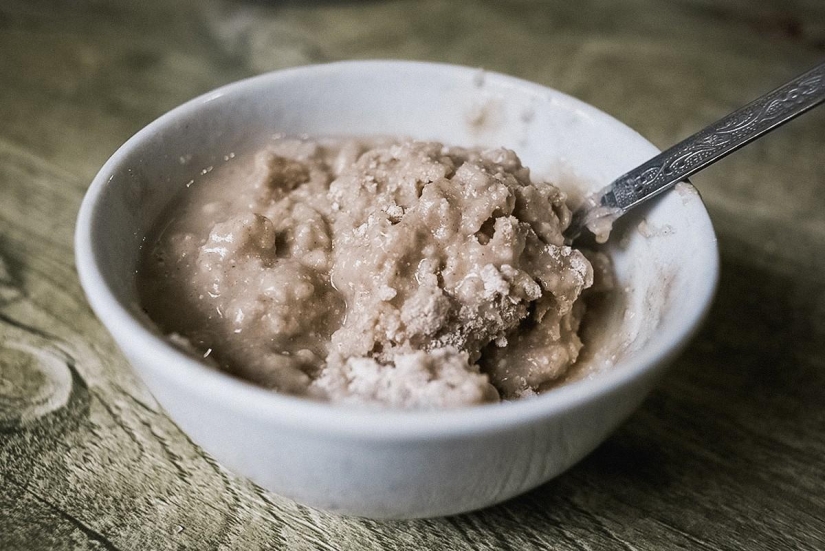
Camp is the most popular dish. This is not a delicacy, and they eat it is not a good life, but simply because more often is simply nothing.
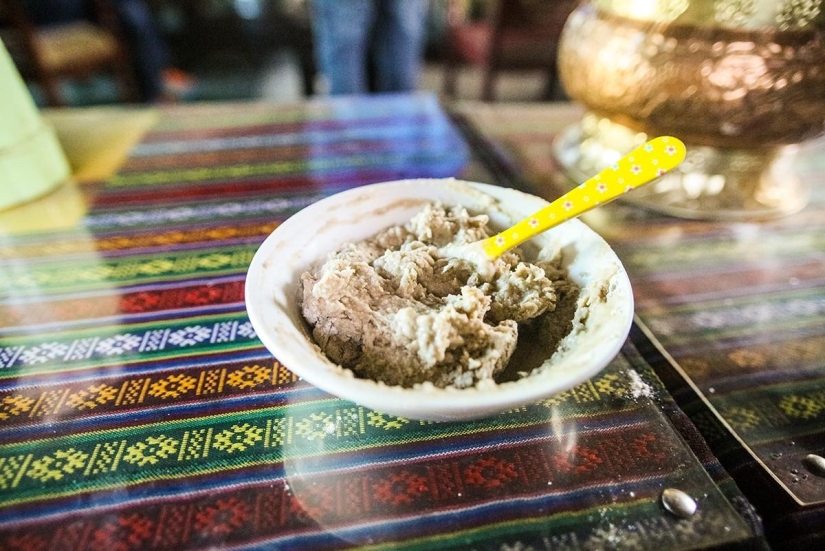
Camp is a mixture of milk DRI (female Yak) butter and barley flour. Barley, in accordance with Tibetan medicine, a good product to give effect. Barley is high in iron, and its frequent use eliminates the traditional problems with anemia associated with poor nutrition in the mountains. In addition, barley nice eliminates swelling, often developing the monks from a sedentary lifestyle and long sitting in one position. Iron also has a good effect on the lungs and bronchi, which often problems arise from the mountain wind and cold.
By itself, barley (ie, if you eat it as cereal, cook ordinary barley) is considered "cold" in their properties. If you barley fry and grind, the properties will change to warming. This is very useful for dealing with the meditation, because they have often heat accumulates in the brain, heart of solid cold weather and problems with internal organs. It is said that the yogis of kidney infection — that is to say, a professional disease.
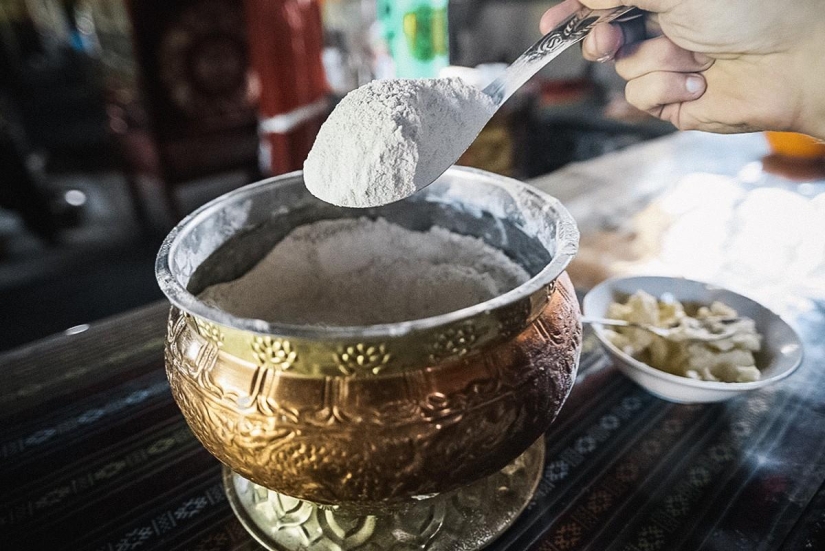
Every morning in any cafe or dining room of a Guesthouse, you can treat campoy. Tastes like ground oatmeal, which give to babies under a year old. We were treated to campoy free, it's the cheapest. You will be served a large bowl of flour, salt Tibetan thermos of tea, sugar and butter and you're at its discretion mix the ingredients are someone who likes liquid, someone Campo thick. Tibetans usually make very thick Campo and eat it with your hands.
Momo
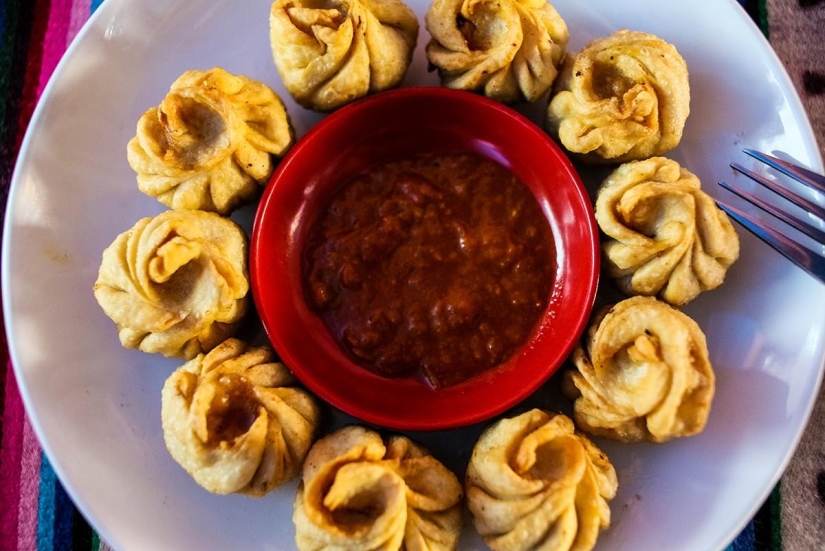
The second most popular national dish is dumplings Momo. If there is one dish that can be present Tibetan cuisine, it is just they are. Momo is a dumpling, steamed, they are served on weekdays, and on holidays. There is only one exception — Momo never eat on the first day of the new year, because the meat is hidden in the dough, denotes hidden fortune.
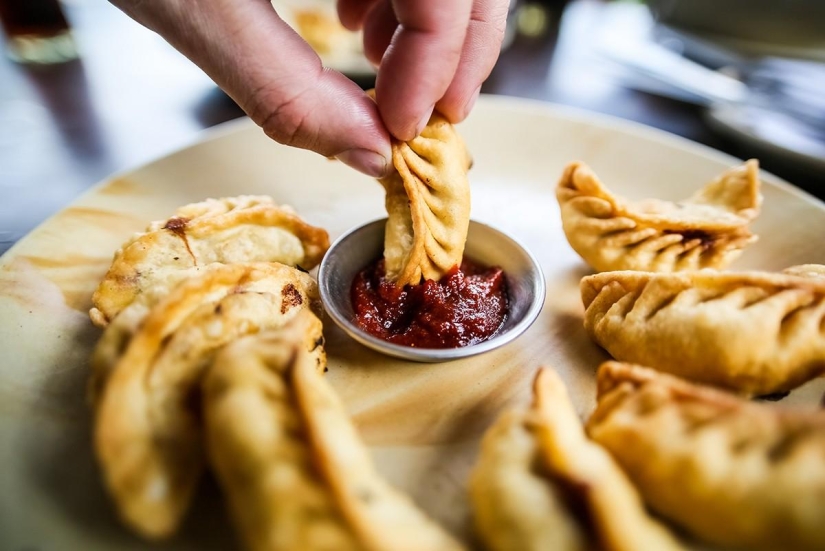
Preparation Momo takes a lot of time and effort, so they are working by several people. Men usually cut the meat, and women make dumplings. All the subtleties of cooking technique Momo aimed at preserving the juices inside. Therefore, it is better to cut the meat than to grind, and vegetables should be handled very carefully. In addition, Momo is impossible to digest.
There are also subtleties in the eating of Momo. First you have to bite off a piece of dough and drink the juices, and then scoop the sauce and eat the rest. Momo is a very tasty in any form.
Thukpa
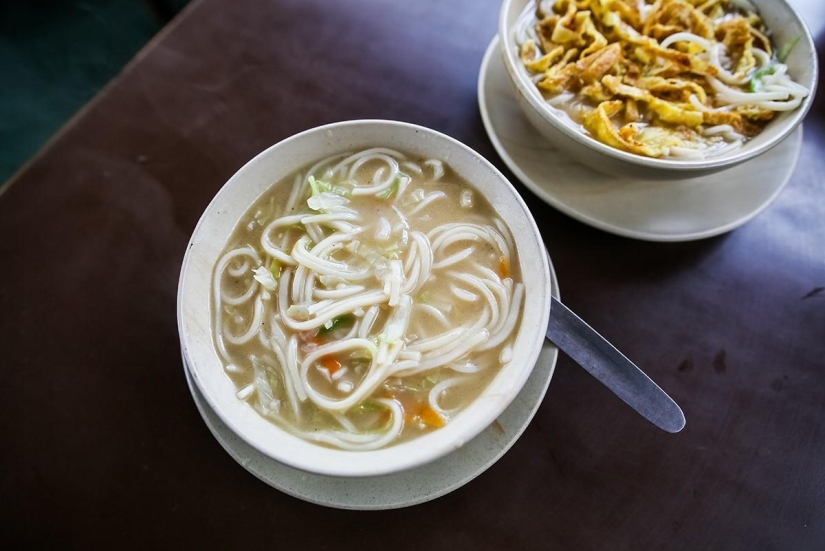
Another very popular dish are soups thukpa and thenthuk, which differ in the shape of noodles. In thuku added to long noodles, and thentook — flat.
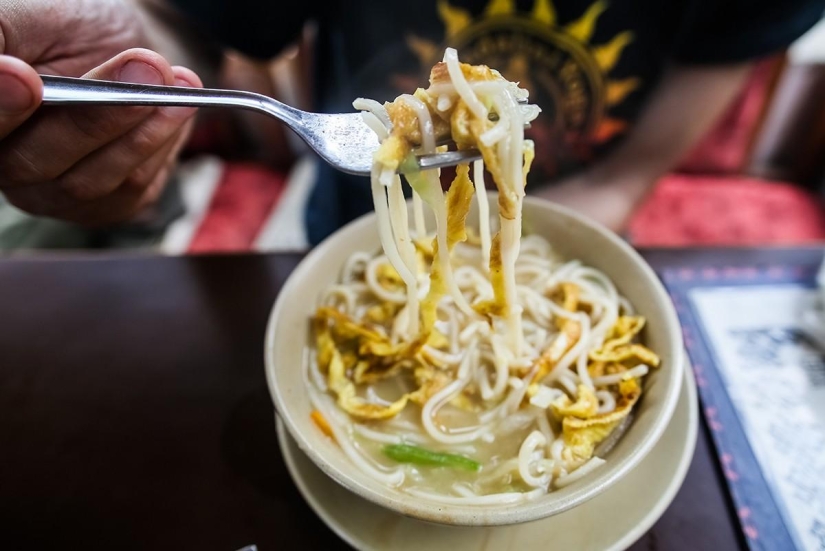
Thukpa with meat. One such portion of substitutes and the first and second. The soup is very tasty, but the meat of Yak — lover.
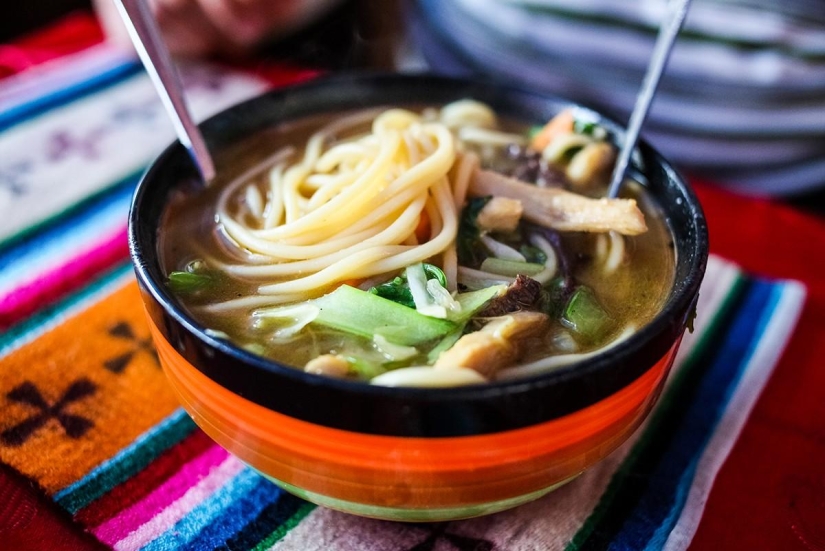
Thukpa with vegetables.
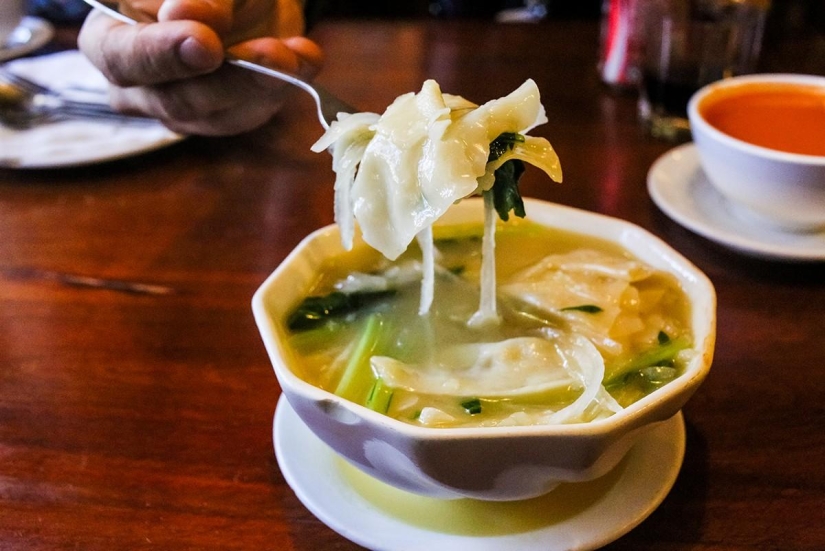
Thukpa from a wide noodles.
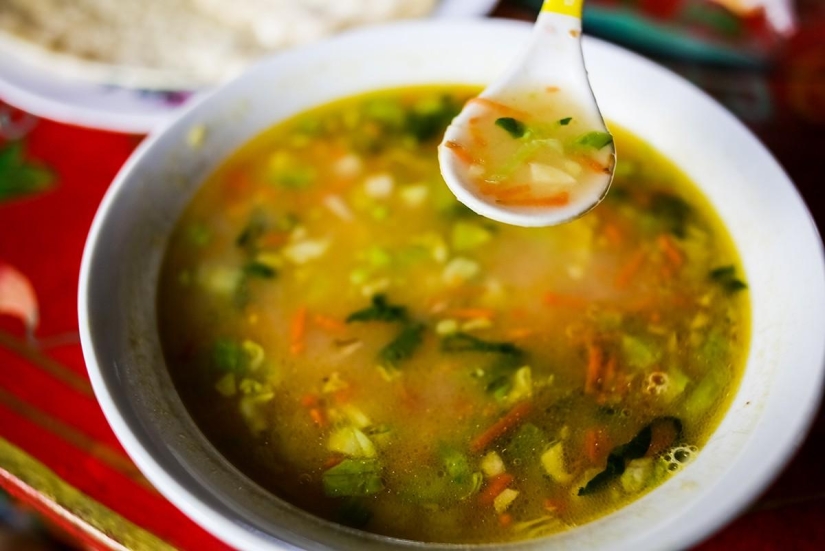
Vegetable soup.
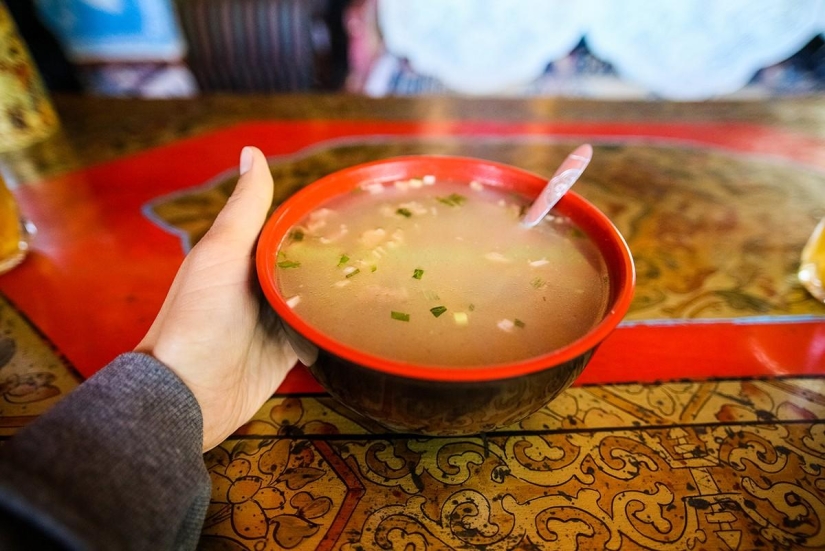
Chicken soup — oddly enough, the worst soup with a strange taste. Eat it one could not.
Bread
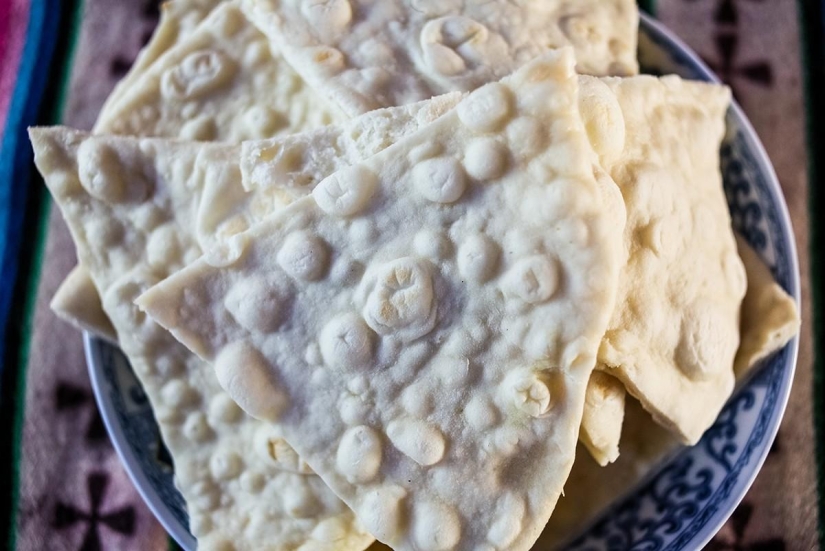
The Tibetans bake your national bread, which, as in many Asian countries, similar in principle to our pita bread. The only exception is steam bread tingmo, which probably also came from the Chinese cuisine.
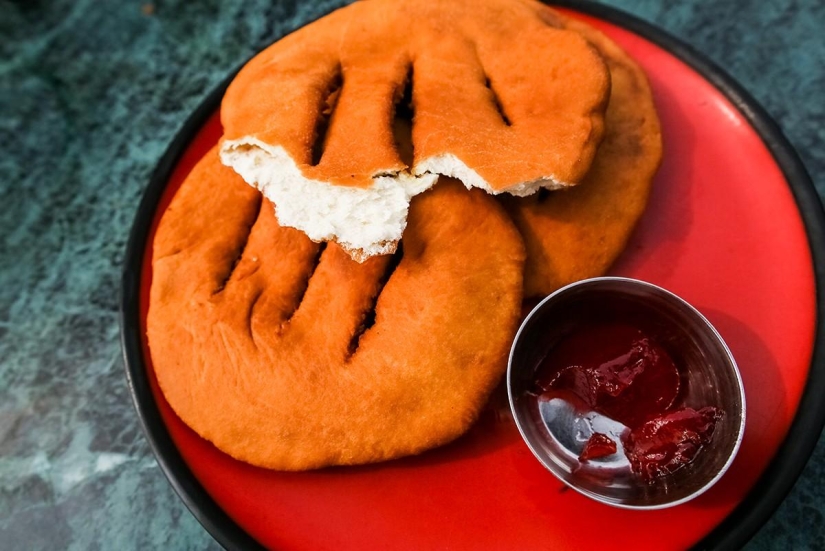
Tortillas with hot sauce.
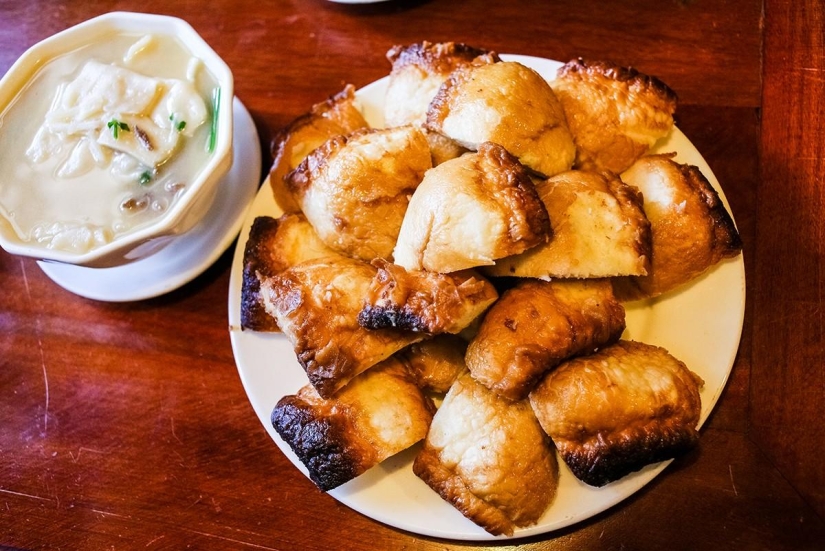
Steam fried bread. Steam bread is very specific — for example, we are unable to eat it. Tastes like soaked breadcrumbs.
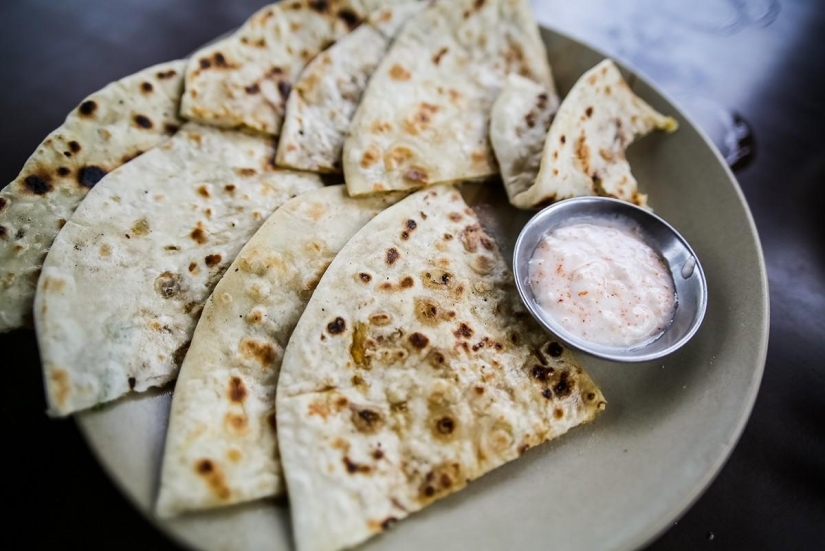
In addition to Momo and thukpa, you feed rice with meat or vegetables and noodles, which, again, has spread under the influence of China. The portions are usually very large, even a man enough one dish.
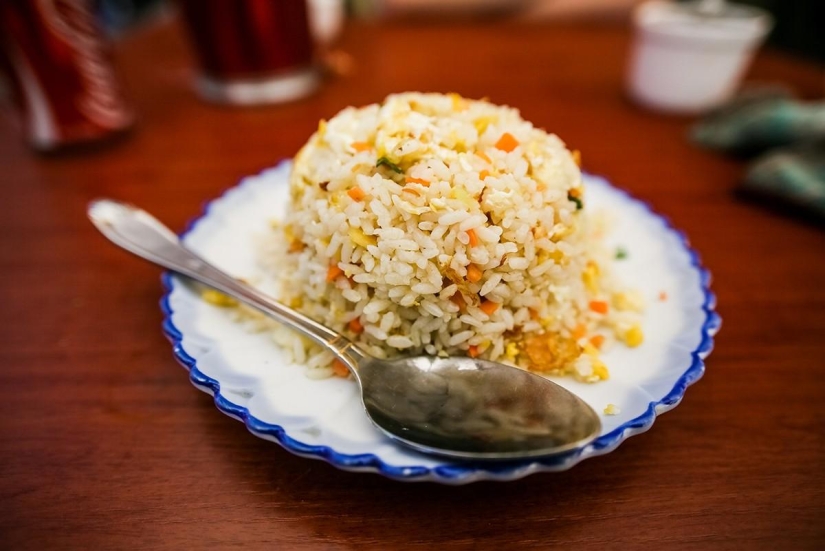
Rice with vegetables. Figure in Tibet is just excellent and vegetables, and meat.
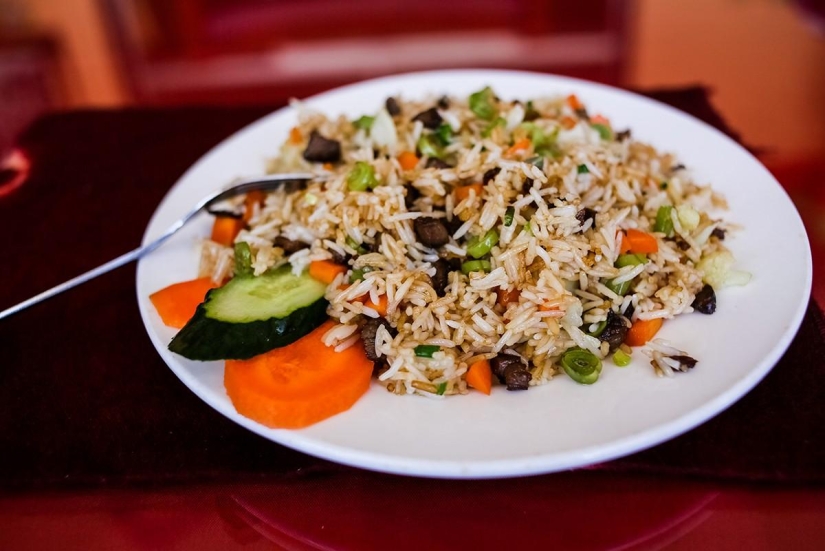
Rice with Yak meat and vegetables.
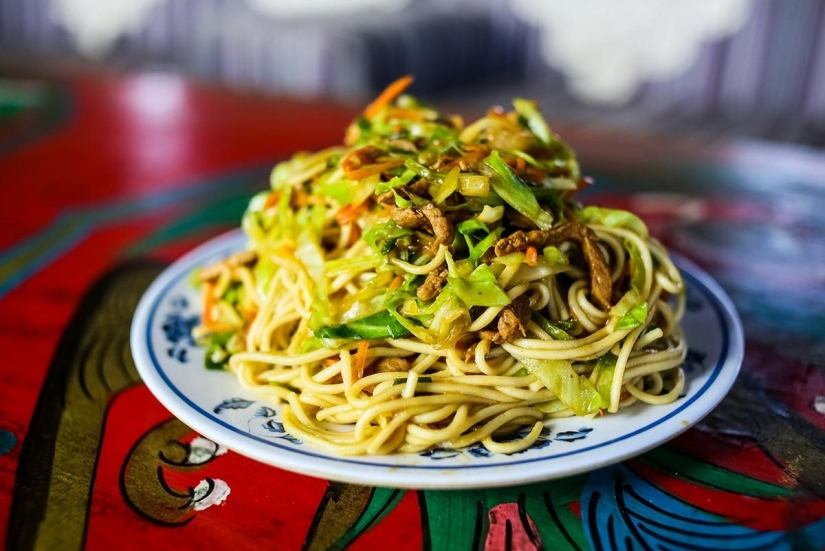
Noodles with meat and vegetables.
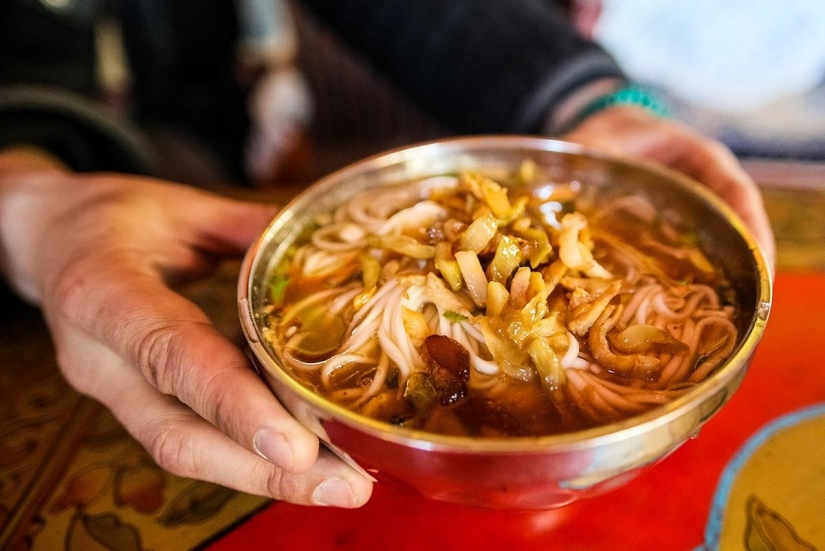
Noodles with scrambled eggs and meat.
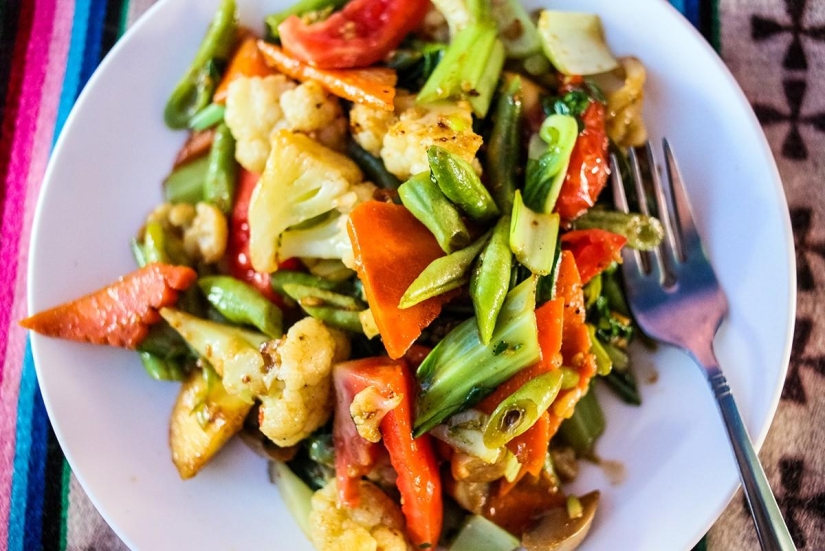
Roasted vegetables.
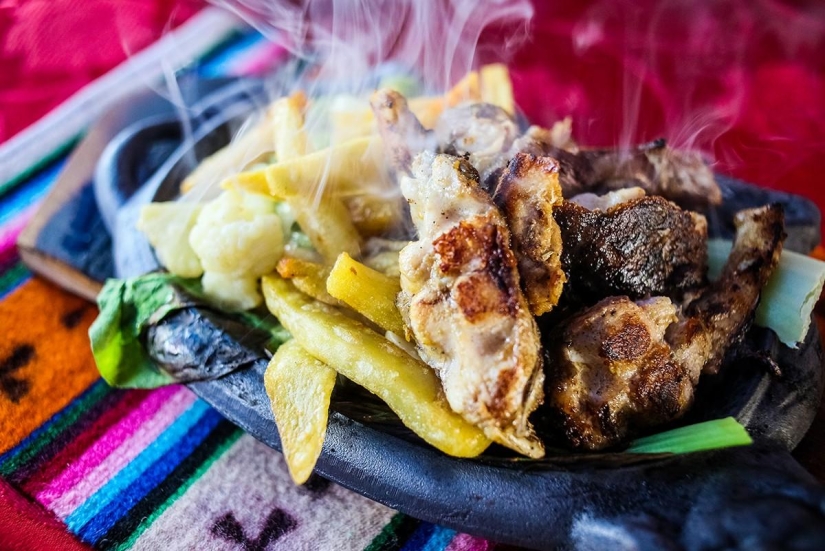
In some cafes close to the border with Nepal and can be enjoyed almost European cuisine. For example, grilled fish with potato fries.
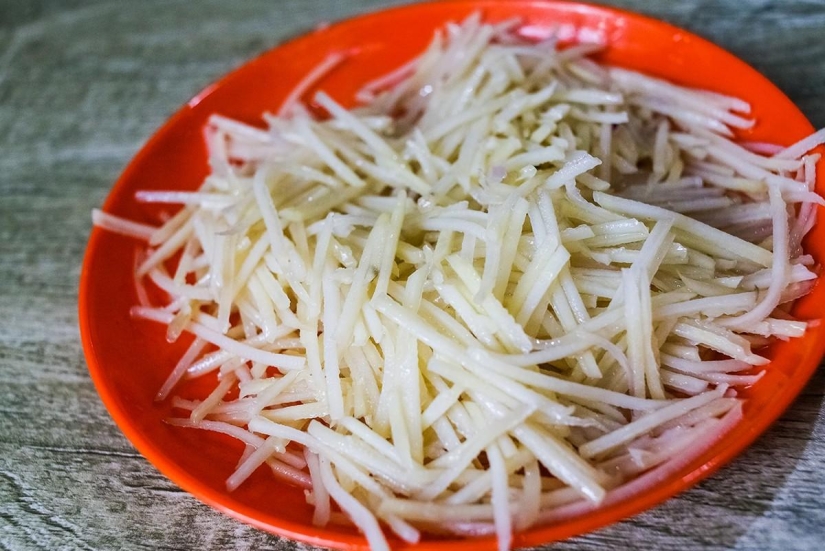
Or fried potatoes. However, with the hot potato among the Tibetans problems, especially for those who live high in the mountains. We could not explain what she needs to cook longer. Eaten nearly raw, but in those conditions and it was a delicacy.
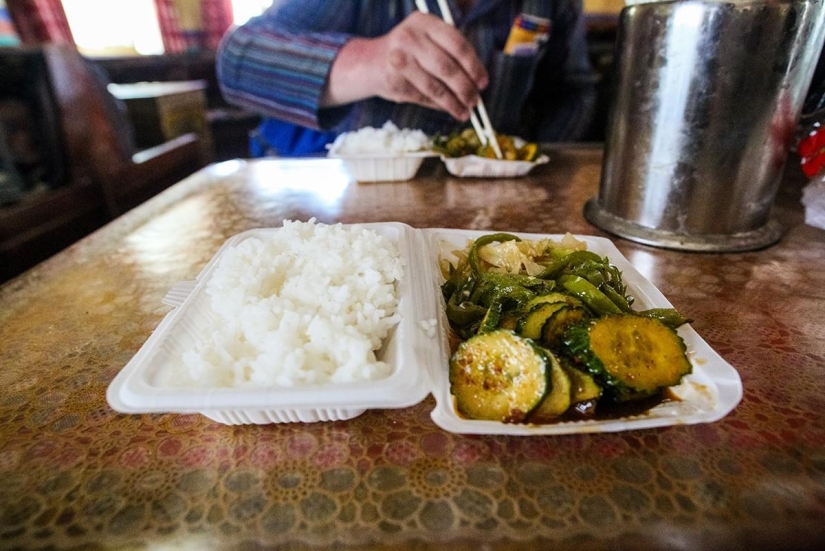
In some monasteries there is the kitchen, where for 40 rubles a very hearty meal. The money is almost gone, and 40 rubles, we got a portion of delicious rice and roasted veggies — it was, perhaps, the most delicious dinner.
Tea
From drinks the most popular is, of course, tea. In Tibet there are two unique types of tea. First — cha ngamo, for foreigners, the Tibetans call it "sweet tee" ("sweet tea"). Is a boiled milk female Yak butter, a bit of black tea and sugar. Very tasty and satisfying.
Second — cha SIMA, aka "tea", "tea salt", "downed the tea." It is made of pressed PU-erh, which is cooked in the milk, then whipped with melted Yak butter and salt in a special wooden churns demo. Nowadays this traditional fixture replaced the electric an eggbeater, which is available in any family because salt Tibetan tea is drunk in large quantities by both adults and children. The Tibetans carry a thermos with a drink everywhere: at work, in the field, on a walk. Any Tibetan'll gladly buy you a Cup of milk. He warms chilly Tibetan protecting from the wind. Also cha suima used for cooking campy.
In Tibetan restaurants you can find other drinks, borrowed from India and China. For example, who came from the province of Yunnan tea babao ("eight treasures"). This is the traditional Chinese mixture of eight types of flowers and dried fruit. You can also meet popular in India and Nepal tea with ginger and lemon, but it will be quite expensive in these parts. Of course, civilization has penetrated even the most remote corners of the earth, and tea bags you can buy everywhere.
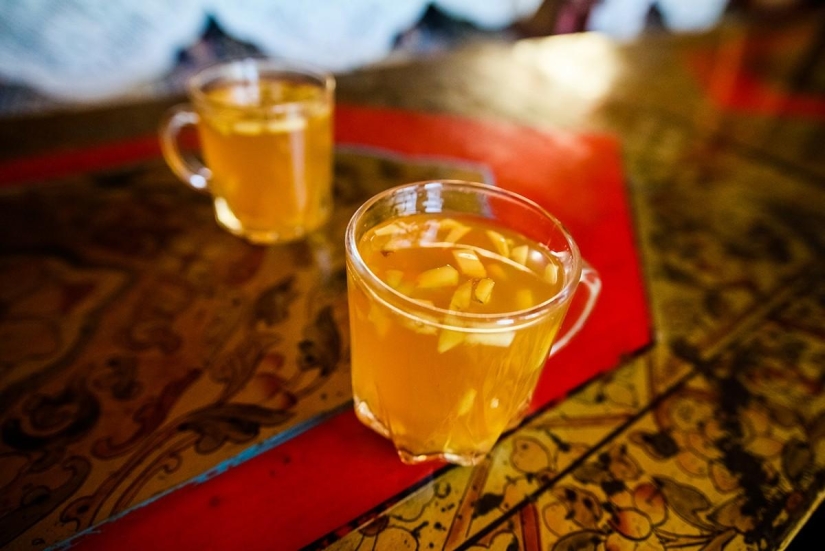
Ginger tea.
Chang
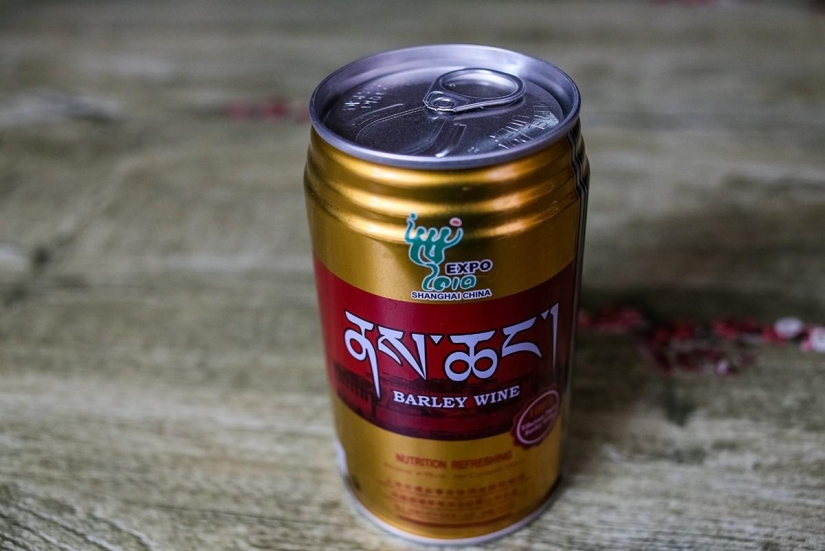
Perhaps the story of the Tibetan kitchen would not be complete without mention of the Tibetan alcoholic beverage Chang or Koh Chang, ne. This barley wine, which in the West is often called the beer, the original taste and not too strong — just 3.8%. In stores you can buy it in red or blue jars and restaurants have the opportunity to try a homemade Chang. The tradition of eating a little different from area to area — for example, in Shigatse in a glass of Chang decided to add a little campy, which I'll never do in Lhasa. But in any case, fans of Changa in Tibet very much. As far as beer, here it is presented in only one local brand "Lhasa". However, to find popular European brand of beer here, too, no problem.
Lunch varies depending on location and product availability. The average lunch costs 25-40 yuan. In big cities you can buy a large portion of fries on the street for 5 yuan or walk to local dining, with a size of 10 square metres, and buy a huge portion of soup for 7-10 yuan.
Bon appetit and amazing adventures!
Photo: Ekaterina Ageeva / Text: Sergey Martynov
Keywords: Asia | Tibet | Travel | Kitchen | Food | Himalayas | Food and drinks | Looking for the magic
Post News ArticleRecent articles

It's high time to admit that this whole hipster idea has gone too far. The concept has become so popular that even restaurants have ...

There is a perception that people only use 10% of their brain potential. But the heroes of our review, apparently, found a way to ...
Related articles

The Mongols seized in the 13th and 14th centuries, a large part of the Eurasian continent, was a force which could not to resist ...

If you like peace and privacy, it is unlikely that you will choose a metropolis, going on vacation. Especially when in the world ...

Walking through this picturesque bridges, you can admire the views from these stunning views and breathtaking landscapes. We invite ...

New Year's is a time to surprise and delight loved ones not only with gifts but also with a unique presentation of the holiday ...